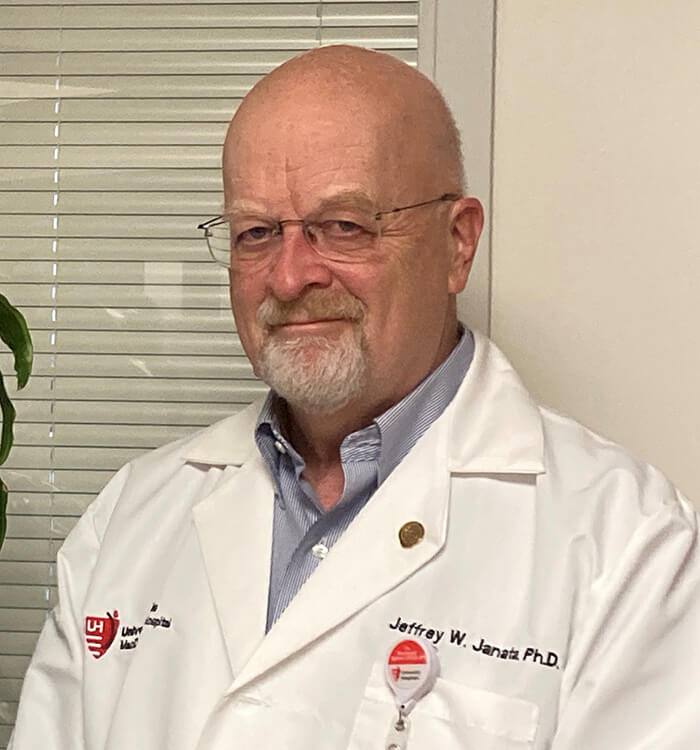Women’s Behavioral Medicine at UH: 40 Years Young and Going Strong
March 02, 2023
Innovations in Obstetrics & Gynecology | Winter 2023
Behavioral medicine is a relatively new, interdisciplinary field, melding medical and behavioral science and practice into healthcare. However, when the Women’s Behavioral Health program began at University Hospitals 40 years ago, it set a precedent that few institutions matched — even today.
 Sheryl Kingsberg, PhD
Sheryl Kingsberg, PhD“We were pioneers back then,” says Sheryl Kingsberg, PhD, Division Chief, OB/GYN Behavioral Medicine, University Hospitals Cleveland Medical Center. “Having a fully integrated and equal Women’s Behavioral Health division within the department of OB/GYN is still not that common.”
Lifespan Care
Women’s physical and mental health needs change over their lifespans, and the expertise offered at the Women’s Behavioral Health division addresses the gamut of issues, including pregnancy and infertility, sexual dysfunction, menopausal transition, gynecological cancers including oncofertility, other gynecological pain and disorders, and gender-affirming care.
 Erika Kelley, PhD
Erika Kelley, PhD“Postpartum depression is the most common complication of childbirth,” says Erika Kelley, PhD, UH Physologist and member of the UH Behavioral Medicine Division. “It really speaks to the importance of having a behavioral medical division directly in the OB/GYN department.”
Dr. Kingsberg says, “While not every woman has children, every woman who lives long enough will go through menopause. This phase of life may cause psychological and sexual symptoms. Behavioral therapy can help. Even physical symptoms can benefit from behavioral therapy.”
Because the program is fully integrated, clinicians feel comfortable asking patients about behavioral and psychological issues as they treat their medical needs. Then, if needed, they can gently hand off their patient to a trusted mental health colleague.
“Women are more comfortable being referred to mental health professionals within the department,” says Dr. Kingsberg. “It doesn’t feel stigmatizing or dismissive. Instead, it feels like a collaboration and extension of their medical care, and women appreciate it.”
Furthermore, being embedded in the department facilitates communication among practitioners, leading to optimum interdisciplinary care, says Dr. Kelley.
Pandemic Brought Opportunities for Innovation
One positive change stemming from the COVID-19 pandemic was the advancement of telemedicine.
“We immediately adapted to the need for, and advantages of, telehealth,” Dr. Kingsberg says. “Telebehavioral health licensing offered to psychologists has resulted in reciprocal licensure across more than 35 other U.S. states. We can now reach women across the country who otherwise would not be able to access our female behavioral health experts.”
Scope of Expertise Deep and Broad
The team brings both diverse and extensive clinical and research expertise to the Women’s Behavioral Health Division.
Dr. Kingsberg is known worldwide for her expertise in female sexual medicine and menopause and provides leadership at medical organizations in this specialty, including having served as president of The North American Menopause Society. She’s published more than 100 peer-reviewed papers and is sought after to help develop clinical trials in female sexual medicine. In addition to presenting her research worldwide, Dr. Kingsberg has a passion for teaching clinicians necessary communication skills when treating women with sexual or menopause symptoms.
Dr. Kelley is also an expert in female sexual disorders, with an emphasis on the role of interpersonal violence and trauma on women’s health across reproductive stages, including pregnancy and postpartum sexual function, and transgender health.
“I understand how trauma and post-traumatic stress disorder impact healthcare conditions, including in vulnerable populations, such as transgender patients,” she says. “I sit on the editorial boards of the Psychology of Violence and Menopause, and my review work focuses on the impact of trauma.”
Living the UH Mission
“UH’s mission is to teach, to heal and to discover,” says Dr. Kingsberg. “In addition to clinical care and research, the Women’s Behavioral Health Division trains OB/GYN medical students and residents, training they wouldn’t normally have access to. We are preparing the next generation of clinicians in women’s behavioral health needs.”
Behavioral healthcare is important in overall healthcare and reduces costs, which are three to six times higher in patients who have behavioral problems in addition to physical illnesses.
“Behavioral healthcare maximizes treatment outcomes, improves mental and overall health quality of life, increases patient adherence and tolerance to treatment, and reduces healthcare costs,” Dr. Kelley says. “In the long run, behavioral healthcare is critical for patients and healthcare systems.”
Dr. Kingsberg agrees whole-person care maximizes outcomes.
“UH has long been supportive of women’s behavioral health, and now other institutions are beginning to follow our lead after seeing the improved health and lowered costs associated with the inclusion of behavioral health,” she says.
Janata Serves as Sihler Chair
 Jeffrey Janata, PhD
Jeffrey Janata, PhDJeffrey Janata, PhD, Division Chief, Psychology, UH Cleveland Medical Center,has been a member of the division of Behavioral Health for many years. He also holds the Sihler Family Professorship in Psychiatry at Case Western Reserve University School of Medicine, the first time this chair has been awarded to a psychologist. Dr. Janata has been funded by the National Institutes of Health for his research in chronic pelvic pain and the Agency for Healthcare Research and Quality in support of a curriculum to teach physicians to better manage chronic pain in the community.
VA Hospital Behavioral Expert Welcomed
 Jamie Huckins-Barker, PhD
Jamie Huckins-Barker, PhDThe division welcomes Jamie Huckins-Barker, PhD, who comes to UH with behavioral medicine training honed from many years at the Cleveland VA Hospital, where healthcare is becoming more interdisciplinary. She has an interest in health behavior change and chronic illness management, including behavioral changes necessary to manage diabetes while pregnant, teaching psychological coping mechanisms to women suffering from chronic pelvic pain and providing psychological and behavioral tools to lower distress associated with oncology care.
Dr. Huckins-Barker is also passionate about training the next generation of psychologists in behavioral medicine and is committed to developing intern and post-doctoral rotations and fellowships.


